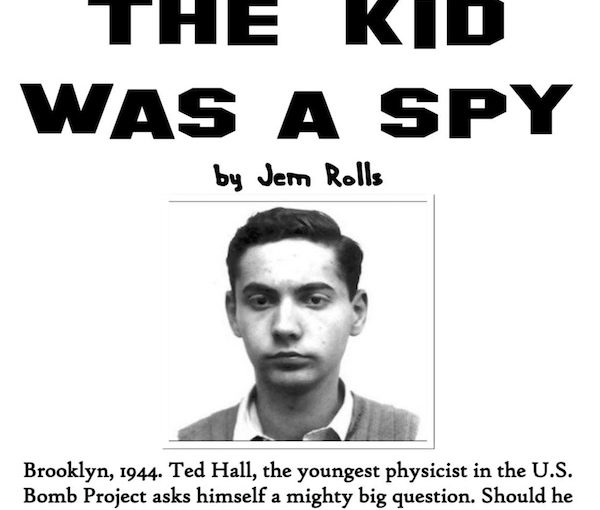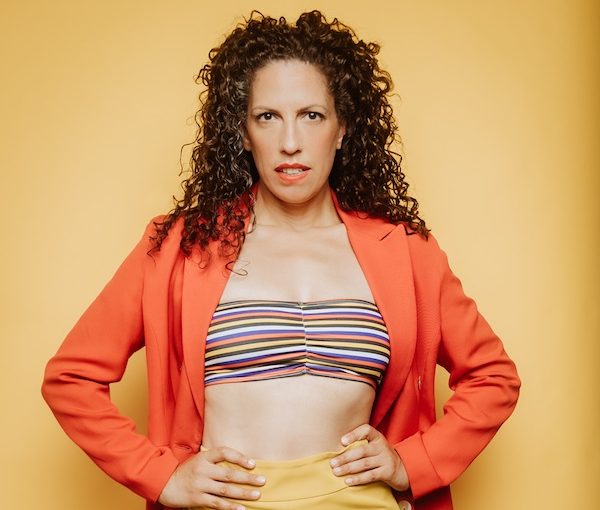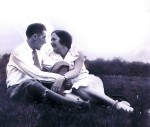Jem Rolls’ The Kid Was a Spy is part of this year’s Vancouver Fringe Festival, which runs Sept 5-15. Other Jewish community members with shows include Rita Sheena, with Everybody Knows: Leonard Cohen Dance Theatre, and Theatre Terrific artistic director Laen Hershler and Susan Bertoia co-direct Proximity: The Space Between Us, which was co-created by an all-abilities cast. For the full festival lineup and tickets, visit vancouverfringe.com.
Tag: Jem Rolls
At the Fringe this year …
Rita Sheena (photo by Kristine Cofsky)
After an acclaimed run at the Vancouver Fringe Festival in 2021 and the Edmonton and Montreal Fringes this year, Everybody Knows returns to its creator’s hometown and the Vancouver Fringe Festival. In this semiautobiographical, one-woman musical set to nine covers of Leonard Cohen songs, Rita Sheena creates a spiraling narrative using contemporary dance, post-modern quirk and the haunting melodies of First Aid Kit.
* * *
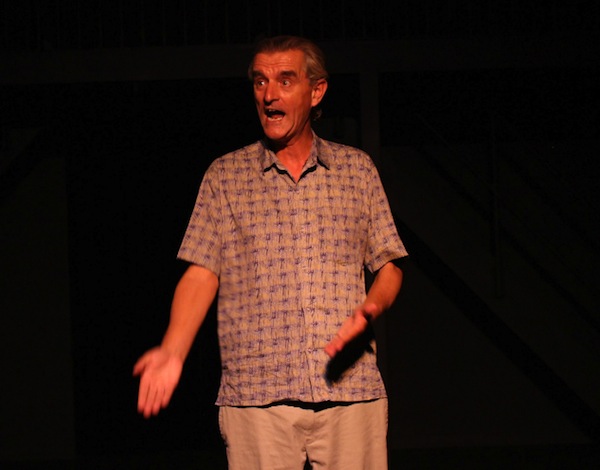
In 2015, Jem Rolls brought his one-man show about Hungarian Jewish physicist Leo Szilard, The Inventor of All Things, to the Vancouver Fringe Festival. This year, he’s back with another show about a forgotten Jewish nuclear physicist – Lise Meitner. The Walk in the Snow: The True Story of Lise Meitner explores how a shy Austrian, who only graduated high school at 23, opened so many doors and achieved so much; how she pushed against age-old sexism and murderous antisemitism; how she was the first or second woman through a whole series of doors; and how she was one of the very few physicists to refuse work on the bomb.
* * *
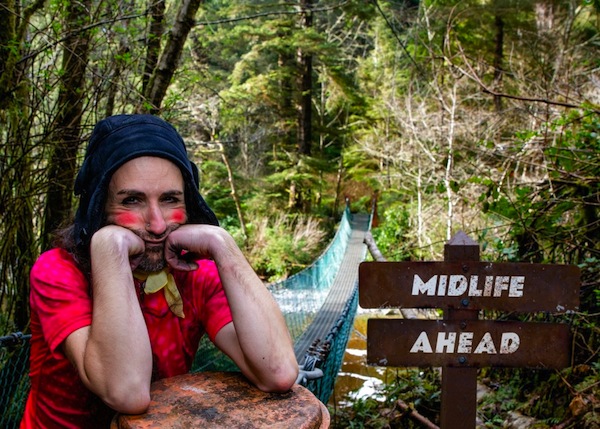
Vancouver-born, Jewish writer and performer ira cooper of Spec Theatre stars in the one-man show mr.coffeehead, which is arriving at the Vancouver Fringe Festival after a series of successful premières at the Winnipeg, Victoria, Edmonton and Montreal Fringes. In Montreal, the “foot-fueled, slapstick tragedy about bikepacking, dreaming big and giving up in your 30s,” which was written by cooper, was nominated for Outstanding Clown Show.
* * *
For the whole Fringe lineup, including Katherine Matlashewski’s Disclosure (jewishindependent.ca/the-journey-to-healing), visit vancouverfringe.com.
Going solo at Fringe
Susan Freedman was inspired by her parents’ love letters. (photo from Susan Freedman)
Among this year’s Vancouver Fringe Festival offerings are several one- person shows, including Spilling Family Secrets by Susan Freedman and The Inventor of All Things by Jem Rolls – both of which have had soldout performances and received high praise on the Fringe circuit. The Independent spoke with each artist about their creation.
Spilling Family Secrets is Susan Freedman’s fourth one-woman Fringe show. Its basis is love letters that her parents wrote to each other between 1927 and 1937, which she melds with stories of her own “marital misadventures.”
JI: You’ve performed Spilling Family Secrets at other Fringes. What has some of the audience feedback been?
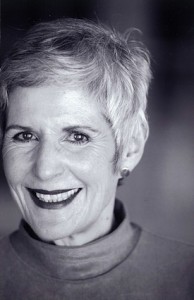
SF: I’ve had terrific audience feedback on this show – and a lot of it! People talk to me about the letters themselves. They are very touched by them. People tell me about how they have seen/found their parents’ or great-grandparents’ love letters. Sometimes the letters have been burned! Sometimes people tell me they’re going to go back and look at them again.
I’ve had many people talk to me after the show about their marital and family issues. It’s an intimate show and people sometimes feel that because I’ve shared my stories, they are comfortable sharing theirs. There is lots of laughter in the show and often some teary-eyed audience members at the end. Yesterday, I had a woman (in Edmonton) run up and give me a huge hug. I’d never seen her before but she was very emotional and positive about the show and felt comfortable coming up to me like that. Pretty lovely!
JI: Sometimes in performing a role more than once, different understandings develop along the way. Have new revelations about your parents, your “marital misadventures” or other parts of the material arisen over the last year-plus?
SF: I am struck by how patient my parents were and how impetuous I was in my love life. More and more, as I do the show, I realize the great benefit in really getting to know the person you are going to marry – before you marry them! I’m more grateful than ever that my parents had such great values, and I realize my good fortune in having had them as parents. I love doing this show and when I mentioned that to my daughter, she said: “Of course you do. You get to spend time with your parents at their best.” It’s true. In their letters, they were young and hopeful and, as my father said in a letter written to Brownie in 1929: “I don’t think we will ever grow old.”
JI: Could you give a brief overview of your creative process, taking the letters from, well, letters, to a performance?
SF: [In the program, it explains:] “My parents’ love letters filled 75 pages – single-spaced – when I transcribed them in 2012. I did it because Brownie and Sam’s 80-year-old letters were too fragile to pass around and I wanted a record of their love story for the family. The letters were long, intimate and wonderful to read. But I do Fringe shows, so I wanted to use the letters in a show. Reading letters on stage is a challenge, so I edited – a lot. I hope what’s left gives you a flavor of Brownie and Sam’s personalities and their relationship….”
That’s what happened. And then I started to combine and add the events from my own life (and my daughter’s) that related to love, the letters and the milestones in the letters. I worked with a wonderful dramaturg-playwright, Lucia Frangione, and she pushed me, asked the right questions and helped so much. Everyone needs a great editor, right? She is mine. I worked with her until I had a good “rehearsal script,” a year ago April.
By now, I’ve done 18 drafts … and I’m pretty pleased with it. It’s just 45 minutes (including time for laughs) and it seems to be a very simple show. It took me a very long time to make it look simple!
I have continued to make small changes and, if I do it again next year (I’d still like to do Montreal and Ottawa Fringes), who knows, maybe more changes.
* * *
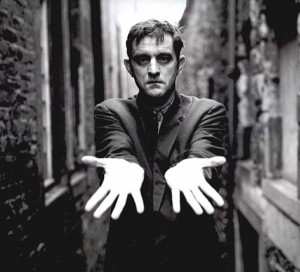
Jem Rolls’ The Inventor of All Things is based on the life of Hungarian Jew Leo Szilard (1898-1964): “peacemaker, physicist, refugee, celebrity, Martian, and more. And very funny. Hated by generals, first to think of the atom bomb, and too good to flush his own toilet.”
JI: When did you first “discover” Szilard? What went into creating Inventor?
JR: I was stuck in Dauphin, Man., one Christmas with nothing to read but a cheesy book on Nazi science, which led me to [Austrian Jewish physicist] Lise Meitner and her nephew Otto Frisch, who have a bunch of great stories I could imagine telling, most notably the famous walk in the snow on Christmas eve of 1938 at Kungälv, where she’s just escaped the Nazis by the skin of her teeth, and Auntie Lise and Nephew Otto discuss the strange results in Berlin and suddenly realize that they have all already been splitting the atom in their labs for years – a massive realization which opened everything up.
And that looked like a great story, but then it led me to the funniest, craziest guy of them all – Leo Szilard … he’d thought of the nuclear chain reaction and, so, the bomb, five years before, when he escaped the Nazis in 1933 and was stateless in London.
If he wasn’t so funny, and so preposterously eccentric, I wouldn’t have a show – it would be too dry and hefty. And the fact he’s forgotten just made it all the better to do, especially as the chief reason he’s forgotten is an antisemitic American general deliberately deleting him from history and the fact it’s such a big story of real historical reach. It’s like Frankenstein’s monster: he is the man who forced the atomic bomb genie out of the bottle – because of his fear of the Nazis – and then desperately tried to get it back in again when the German defeat was certain.
I have been thinking about the show for years, and I would explain my ideas to loads of people on the Fringe tour and they all said, “You should do a show about this,” so, in the end, I have.
I’m a performance poet by trade and, though I’m loath to leave that for awhile, the change has been great and, as it’s storytelling, I’ve had to make myself coherent and completely understandable, which has never quite been a priority before. Plus, performance poetry is a very good place to venture into storytelling from. I have all manner of vocal and physical and linguistic tricks I am thoroughly enjoying deploying in a tight historical narrative.
JI: When and where did you first perform Inventor? What are some of the ways in which you have adapted your performance or the content, if at all, as you’ve performed it?
JR: I wrote the show in Cyprus … having been thinking about it for years, and I edited it and learnt it up the Rio Negro in the Brazilian Amazon, in a lovely small town no one goes to called Barcelos and on the front of the slow boats which ply the reaches of the Amazon…. The journeys take days and I would sit on the front all day watching the unchanging jungle go by and muttering the script to myself as the sun arced the unchanging sky.
The process is a long one: years of thinking and reading/researching, a quick first draft and then a long four-month process of learning and editing to get the story in shape, which involves months of agonizing times, throwing bits out of the show that I really like till I have a tight, coherent thing which still has to be performed.
I always open in Montreal, and only then do I find what the show really is, and then there’s weeks of battle to get a show I am happy with and which my performance is doing justice to. It’s also a struggle to make oneself physically and mentally tough enough to give the show what it needs day in and day out.
Doing the show has forced the horrible realities of the times upon me. I know all the history, of course, but to follow the life of this guy who escaped the antisemitic reaction in Hungary in 1919, then the Nazis, who did so much to help his fellow Jews, who never finished any work because he’d always already had another brilliant idea … I really like the guy. I tell the audience I think he’s a hero, that I’m going to prove he’s a hero. Everyone likes their forgotten heroes and, when I show the audience that he was the chief wrecker of the Nazi bomb, I get a huge round of applause for the guy. One can make the claim that a Jew doomed Hitler – and that man is Szilard. And the forgotten-ness of the story is shocking – why hasn’t [Steven] Spielberg made a movie out of him?
I’ve had some very nice times with the show. I’ve been blessed in Hebrew by an old singer. I’ve had very respectable, well-dressed young men come up to me and shake my hand and say, “Well, I’m a Hungarian Jew and no one ever told me that story,” and I had a professor emeritus of physics from Toronto literally bouncing up and down in glee after show, Bob Logan, a Brooklyn Jewish guy who actually met Leo in ’57 and loved the show. I’ve had an Einstein scholar who had to go back and check his research and see that, yes, I was right, and he’d never realized certain things about Einstein because I am putting together Szilard’s story in a way that no one ever has – I am going for the drama, for the cliffhangers, for the big moments, and there a number of very big moments from 1933-1945.
***
Among the one-person shows at this year’s Vancouver Fringe Festival, which runs from Sept. 10-20, are also:
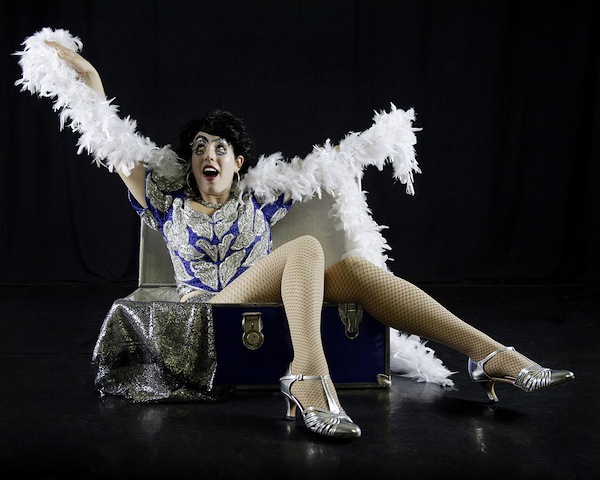
UnCouth (14+), created by Windy Wynazz with Dan Griffiths, and performed by Wynazz. The show is “a bawdy, campy, comedy cabaret, drawing for inspiration on real-life experiences of being teased in school, falling in with a ‘bad crowd,’ and heteronormative gender expectations,” Wynazz told the JI. The 2014 San Francisco Comedienne of the Year “uses contemporary clowning to dig deeper into the underbelly of humanity, all while providing subversive comic relief on the human condition.” UnCouth is also at the Victoria Fringe Festival till Sept. 4.
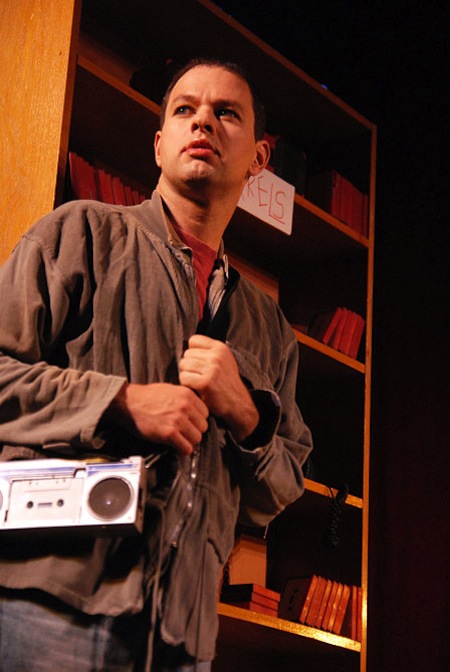
Roy Horovitz brings the English version of Benny Barbash’s play My First Sony (which is based on Barbash’s 1994 novel of the same name) to this year’s Fringe. The play is told from the perspective of Yotam, an 11-year-old who records everything on his tape recorder, “my first Sony,” including some of the painful moments in his life, such as his parents’ separation.
For tickets and the full schedule, visit vancouverfringe.com.

